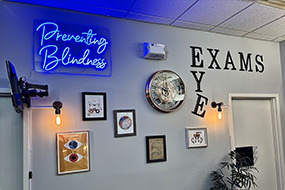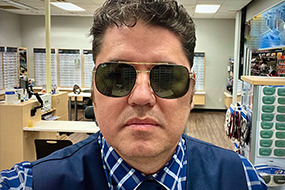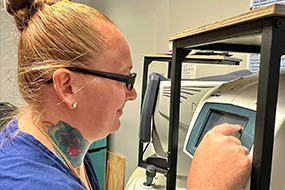
Macular degeneration damages the macula. That is the central part of the retina at the back of your eye. This condition makes your central vision blurry or causes you to go blind. If not treated, it worsens over time and causes permanent vision loss.
Thankfully, several treatments exist. These can slow or stop macular degeneration. Here are the available options for managing this condition.
Understanding Macular Degeneration
Macular degeneration often starts slowly and affects older adults. The dry kind is more common. Waste builds up under the macula over many years. The wet kind involves leaky blood vessels under the macula. They bleed or ooze fluid. This damages vision cells quickly. Symptoms are blurry central eyesight, wavy vision, and eventually blank spots in the center of what you see.
Can Your Vision Get Better?
Treatments aim to save the eyesight you still have left. They cannot restore your lost vision. Applying treatments as soon as possible gives you the best chance to stabilize or improve a little. Without treatment, eye doctors expect vision loss to speed up. Fast diagnosis and early treatment help you keep reading and doing daily tasks longer.
Four Treatment Approaches
Doctors often combine therapies and lifestyle changes for the best long-term results. Four main types exist. These are medications, injections, laser treatments, and surgery.
Oral Medications
Some pills treat wet macular degeneration. They work in different ways:
- They stop new blood vessels from growing.
- They reduce swelling.
- They block signals related to fluid leakage.
Your eye doctor will pick the best medication for you based on tests and your health history.
Eye Injections
When abnormal blood vessels leak fluid under the macula, eye doctors often inject medicine inside the eye. Lucentis and Eylea are the two main medicines for this. Doctors give these anti-VEGF shots every four to eight weeks. They block proteins that make fluid build up to save sight.
Laser Surgery
For cases with abnormal blood vessels, doctors may use a focused laser beam to seal leaking blood vessels. This takes just minutes per eye but can prevent or delay vision loss.
Vitrectomy
If bleeding blurs sight severely despite other treatments, vitrectomy surgery may help. Surgeons remove blood and fluid clouding the eye's interior center. Then, they replace it with a salt solution. After healing for a few weeks, vision often improves.
Supportive Therapies
Doctors also suggest supportive therapies alongside the main treatments. Recommendations are eating lots of fruits and vegetables, taking antioxidant supplements, protecting eyes from sunlight, and using contrast glasses. These can help maximize the results.
Commit to Your Treatment Plan
Fighting macular degeneration requires an ongoing partnership with your ophthalmologist. Follow-up exams determine if added or alternative treatments become necessary over time. New options constantly emerge, so having an expert guide your care is crucial. Focus on maintaining your independence and quality of life by sticking to your treatment regimen.
Though no cure exists, science has made significant progress in diagnosing and slowing macular degeneration. Most patients respond well to modern combined treatment plans, even those with advanced disease. Newer technologies seem promising, so there is hope for keeping functional vision longer. This is the case regardless of your diagnosis date or disease stage. It is best to stay connected with your eye doctor to explore all options.
For more on macular degeneration, visit Doc Eye at our Waterford, Connecticut, office. Call (860) 215-4009 to book an appointment today.


















